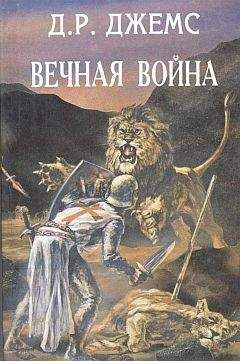Daphne du Maurier - Frenchmans Creek
She bit through the palm of his hand, and drove her left fist into his eyes, and now he released her wrist, doubled up beneath her back, so that he could have two hands on her throat, and she felt the pressure of his thumbs on her windpipe, choking her. Her right hand struggled for the knife, and suddenly her fingers closed upon it, and gripping the cold hasp she drove it upwards, under his arm-pit, and she felt the horrid yielding of his soft flesh to the blade, surprisingly easy, surprisingly warm, with the blood running thick and fast on her hand. He sighed, long-drawn and strange, his hand no longer pressing upon her throat, and fell sideways on the table amongst the glass, and she pushed him from her and stood once more on her feet, her knees trembling, with the dogs barking madly about her legs. And now he was dragging himself from the table, too, his glazed eyes turned upon her, one hand pressed to the wound under his arm, and with the other he reached for a great silver carafe that still stood upon the table, and with this he would have smashed her face and trodden her to the ground, but even as he moved towards her the last candle flickered on the wall and was gutted, and they were in darkness.
She felt the edge of the table with her hands, and worked her way round it, out of his reach, and she heard him groping for her in the black hall, stumbling over a chair that stood in his way. Now she was making for the staircase, she could see a glimmer of pale light from the window in the gallery, and here were the stairs themselves, and the rail, and she was climbing the stairs, with the two dogs barking at her heels. Somewhere from above she could hear shouts and cries, and the thumping of fists upon a door, but all this was confusion, was a dream having no connection with the battle that was hers alone. Looking back over her shoulder, sobbing, she saw Rockingham at the foot of the stairs, and he was not standing upright as he had before, but was climbing towards her on all fours like the dogs at her heels. She reached the top of the stairs, and the shouts and thumps were louder now. There was Godolphin's voice amongst them, and Harry's too, while the barking of the dogs joined the clamour, and from the direction of the nurseries came the high-pitched frightened scream of a child, woken from his sleep. Then she knew anger at last, and not fear. Then she was resolute, and calm, and cold. The grey light from the window, where the moon struggled through the clouds, shone feebly upon a shield hanging on the wall, some trophy of a dead St. Columb, and she tore it from its place on the wall, heavy and dusty with age, and the weight of it dragged her to her knees. Still Rockingham came. She could see his back, humped against the rail, as he paused for breath, and she could hear the scratching of his hands upon the stairs and the quick sound of his breathing. When he turned the corner of the stair and stood a moment, turning his head, looking for her in the darkness, she hurled the shield at him, driving it full in his face, and he staggered and fell, turning over and over on the stairs, crashing with the shield on top of him to the stone floor below. And the dogs went down after him, excited and barking, scampering in play, nosing his body as it lay there on the floor. Dona stood motionless, all feeling spent, a great ache behind her eyes, the sound of James's cry still ringing in her ears, and somewhere now there were footsteps, and a voice calling in anxiety and fear, and the splintering tearing noise of breaking wood. It would be Harry perhaps, or Eustick, or Godolphin, beating down the locked door of the bedroom where they were imprisoned, and it seemed to her that these things mattered little, for she was too weary now to care. She wanted to lie down in the darkness, and to sleep with her face between her hands, and she remembered that somewhere along this passage was her room, and her own bed, where she could hide and be forgotten. Somewhere, in the river, there was a ship called La Mouette, and the man she loved stood at the wheel now, taking his ship to the sea. She had promised to give him her answer at day-break, and to wait for him on the little spit of sand that jutted out into the sea. William would take her to him, William the faithful, somehow they would find their way across the country in the darkness, and when they reached the cove the boat would put off from the ship towards them, even as he had said. She thought of the coast of Brittany as she had seen it once before, golden at sunrise, with the rocks about it jagged and crimson, like the coast of Devon. The white breakers hurled themselves upon the sand, and the spray threw a fine mist onto the cliffs, the smell of it mingling with the warm earth and the grass.
Somewhere there was a house which she had never seen, but he would take her to it, and she would feel the grey walls with her hands. She wanted to sleep now, and dream of these things, and remember no more the guttering candles in the dining-hall below, with the smashed glass and the broken chairs, and Rockingham's face when the knife touched his flesh. She wanted to sleep, and it seemed to her suddenly that she stood no longer, that she was falling too, as Rockingham had done, and the blackness came about her and covered her, and there was a rushing of wind in her ears…
Surely it was long afterwards that people came and bent over her, and hands lifted her and carried her. And someone bathed her face, and her throat, and laid pillows under her head. There were many voices in the distance, men's voices, and the coming and going of heavy footsteps, and there must have been horses in the courtyard outside the house; she could hear their hoofs on the cobbles. Once too she heard the stable clock strike three.
And dimly, in the back of her mind, something whispered, "He will be waiting for me on the spit of sand, and I am lying here, and I cannot move, and I cannot go to him," and she tried to raise herself from her bed, but she had no strength. It was still dark, while outside her window she could hear a little thin trickle of rain. Then she must have slept, the heavy dull sleep of exhaustion, for when she opened her eyes it was daylight, and the curtains had been drawn, and there was Harry kneeling by her side, fondling her hair with his great clumsy hands. He was peering into her face, his blue eyes troubled, and he was blubbing like a child.
"Are you all right, Dona?" he said, "are you better, are you well?"
She stared at him without understanding, the dull ache still behind her eyes, and she thought how ridiculous it was that he should kneel there, in so foolish a manner, and she felt a sort of shame upon her that he should do so.
"Rock's dead," he said. "We found him dead there, on the floor, with his poor neck broken. Rock, the best friend I have ever had." And the tears rolled down his cheeks, and she went on staring at him. "He saved your life, you know," said Harry; "he must have fought that devil single-handed, alone there in the darkness, while you fled up here to warn us. My poor beautiful, my poor sweet."
She did not listen to him any more, she sat up, looking at the daylight as it streamed into her window. "What is the time?" she said, "how long has the sun been risen?"
"The sun?" he said blankly, "why, it's nearly noon I believe. What of it? You are going to rest, are you not? You must, after all you have suffered last night."
She put her hands over her eyes and tried to think. It was noon then, and the ship would have sailed, for he could not have waited for her after the day had broken. She had lain here sleeping on her bed, while the little boat put in to the spit of sand and found it empty.
"Try and rest again, my lovely," said Harry, "try and forget the confounded Goddamned night. I'll never drink again, I swear it. It's my fault, I ought to have stopped it all. But you shall have your revenge, I promise you that. We've caught him, you know, we've got the blasted fellow."
"What do you mean?" she said slowly, "what are you talking about?"
"Why, the Frenchman of course," he said, "the devil who killed Rock, and would have killed you too. The ship's gone, and the rest of his battered crew, but we've got him, the leader, the damned pirate."
She went on staring at him without understanding, dazed, as though he had struck her, and he, seeing her eyes, was troubled, and began once more to fondle her hair and to kiss her fingers, murmuring, "My poor girl, what a confounded to-do, eh, what a night, what a devilish thing." And then, pausing a moment, he looked at her, and flushed, a little confused, still holding her fingers, and because the despair in her eyes was something dark and new, was a thing he did not understand, he said to her awkwardly, like a shy and clumsy boy: "That Frenchman, that pirate, he didn't molest you in any way, did he, Dona?"
CHAPTER XXI
Two days came and went, things without hours or minutes, in which she dressed herself, and ate, and went out into the garden, and all the while she was possessed by a strange sense of unreality, as though it was not she who moved, but some other woman, whose very words she did not understand. No thoughts came to her mind: it was as though part of her slept still, and the numbness spread from her mind to her body, so that she felt nothing of the sun when it came from two clouds and shone a moment, and when a little chill wind blew she was not cold.
At one time the children ran out to greet her, and James climbed on her knee, and Henrietta, dancing before her, said, "A wicked pirate has been caught, and Prue says he will be hanged." She was aware of Prue's face, pale, rather subdued, and with an effort she remembered that there had been death, of course, at Navron, that at this moment Rockingham would be lying in a darkened church awaiting burial. There was a dull greyness about these days, like the Sundays she remembered as a child, when the Puritans forbade dancing on the green. There was a moment when the rector of Helston Church appeared and spoke to her gravely, condoling with her on the loss of so great a friend. And afterwards he rode away, and Harry was beside her again, blowing his nose, and speaking in a hushed voice entirely unlike himself. He stayed by her continually, humble and anxious to please, and kept asking her whether she needed anything, a cloak, or a coverlet for her knees, and when she shook her head, wishing he would leave her quietly, so that she could sit, staring at nothing, he began protesting once more how much he loved her, and that he would never drink again: it was all because he had drunk too much that fatal night that they had let themselves be trapped in such a way, and but for his carelessness and sloth poor Rockingham would be alive.
"I'll cut out gambling too," he said. "I'll never touch another card, and I'll sell the town house, and we'll go and live in Hampshire, Dona, near your old home, where we first met. I'll live the life of a country gentleman at last, with you and the children, and I'll teach young James to ride and to hawk. How would you like that, eh?"
Still she did not answer, but went on staring in front of her.
"There's always been something baleful about Navron," he said, "I remember thinking so as a boy. I never felt well here: the, air is too soft. It doesn't suit me. It doesn't suit you, either. We'll go away as soon as this business is over and done with. If only we could lay our hands on that damned spy of a servant, and hang 'em both at the same time. God, when I think of the danger you were in, you know, trusting that fellow." And he began to blow his nose again, shaking his head. One of the spaniels came fawning up to her, licking her hands, and suddenly she remembered the furious barking of the night, the yapping, the excitement, and in a flash her darkened mind became alive again, awake and horribly aware. Her heart beat loudly, for no reason, and the house, and the trees, and the figure of Harry sitting beside her took shape and form. He was talking, and she knew now that every word he uttered might be of importance, and that she must miss nothing, for there were plans to make, and time itself was now of desperate value.




